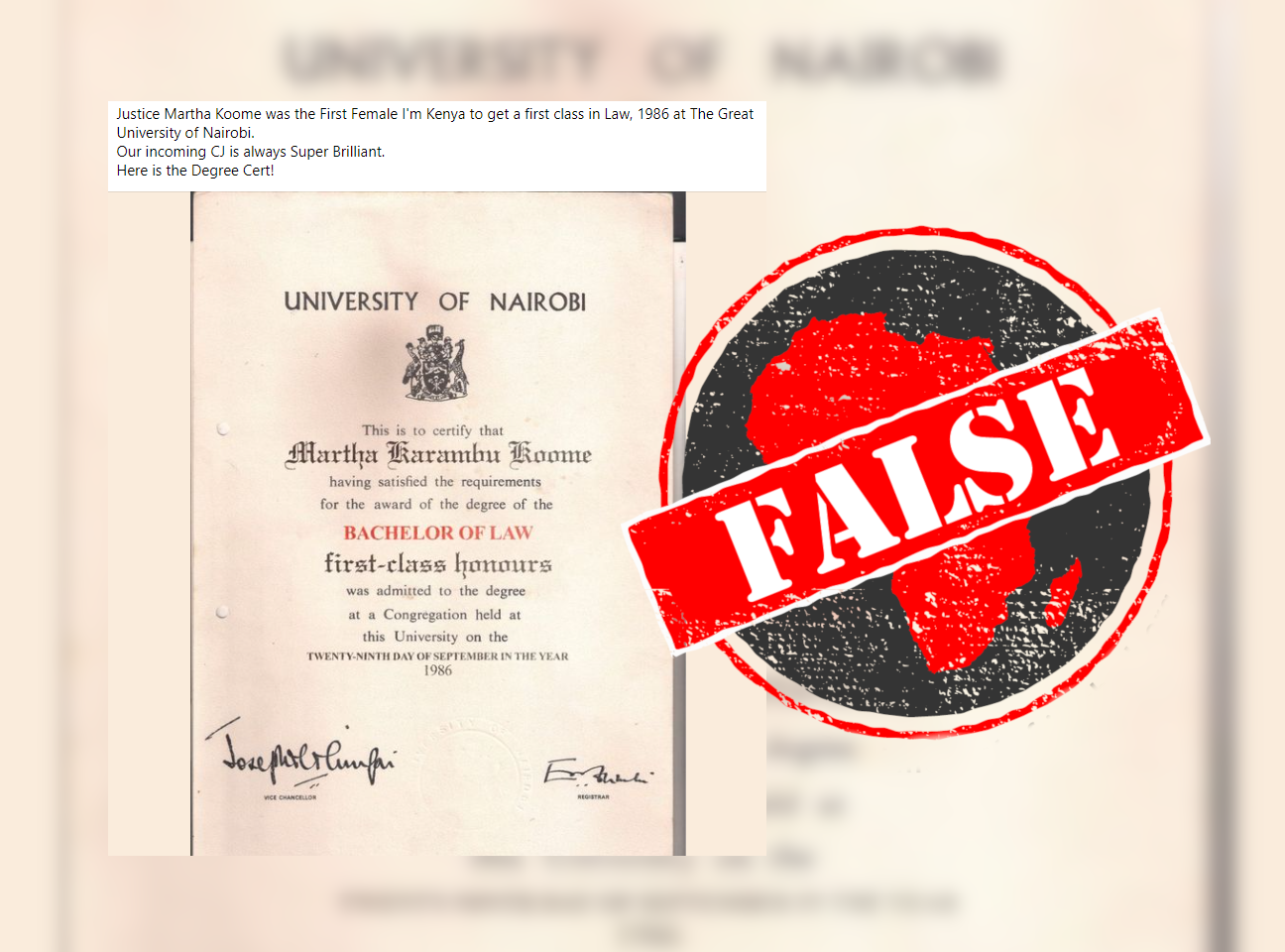A Facebook page shared what looks like a degree certificate for the Kenyan chief justice, Martha Karambu Koome.
The certificate shows the logo of the University of Nairobi and the judge’s name. It says she was awarded a bachelor of law degree with first-class honours on 29 September 1986.
The post is captioned: “Justice Martha Koome was the first female I’m Kenya to get a first class in Law, 1986 at the Great University of Nairobi. Our incoming CJ is always Super Brilliant.”
Other Facebook users also shared the certificate, with some suggesting it was a “fake transcript”.
Koome was sworn in on 21 May 2021. She is the country’s 15th chief justice and the first woman in the position.
But is this really the chief justice’s degree certificate? We checked.

University records show judge ‘passed’ degree
Africa Check searched for the phrase “school of law university of nairobi 1986” on Google.
We found a booklet in the university’s archive with records of all students that graduated in that year.
According to the record, the school of law had 127 students who graduated with a degree of bachelor of law. But no law student was awarded first class honours. Martha Karambu Koome received a “pass” and is listed at number 113.
During her vetting at Kenya’s national assembly, Koome presented a copy of her original degree which confirms the university record. The certificate circulating on social media is fake.
Republish our content for free
For publishers: what to do if your post is rated false
A fact-checker has rated your Facebook or Instagram post as “false”, “altered”, “partly false” or “missing context”. This could have serious consequences. What do you do?
Click on our guide for the steps you should follow.
Publishers guideAfrica Check teams up with Facebook
Africa Check is a partner in Meta's third-party fact-checking programme to help stop the spread of false information on social media.
The content we rate as “false” will be downgraded on Facebook and Instagram. This means fewer people will see it.
You can also help identify false information on Facebook. This guide explains how.


Add new comment